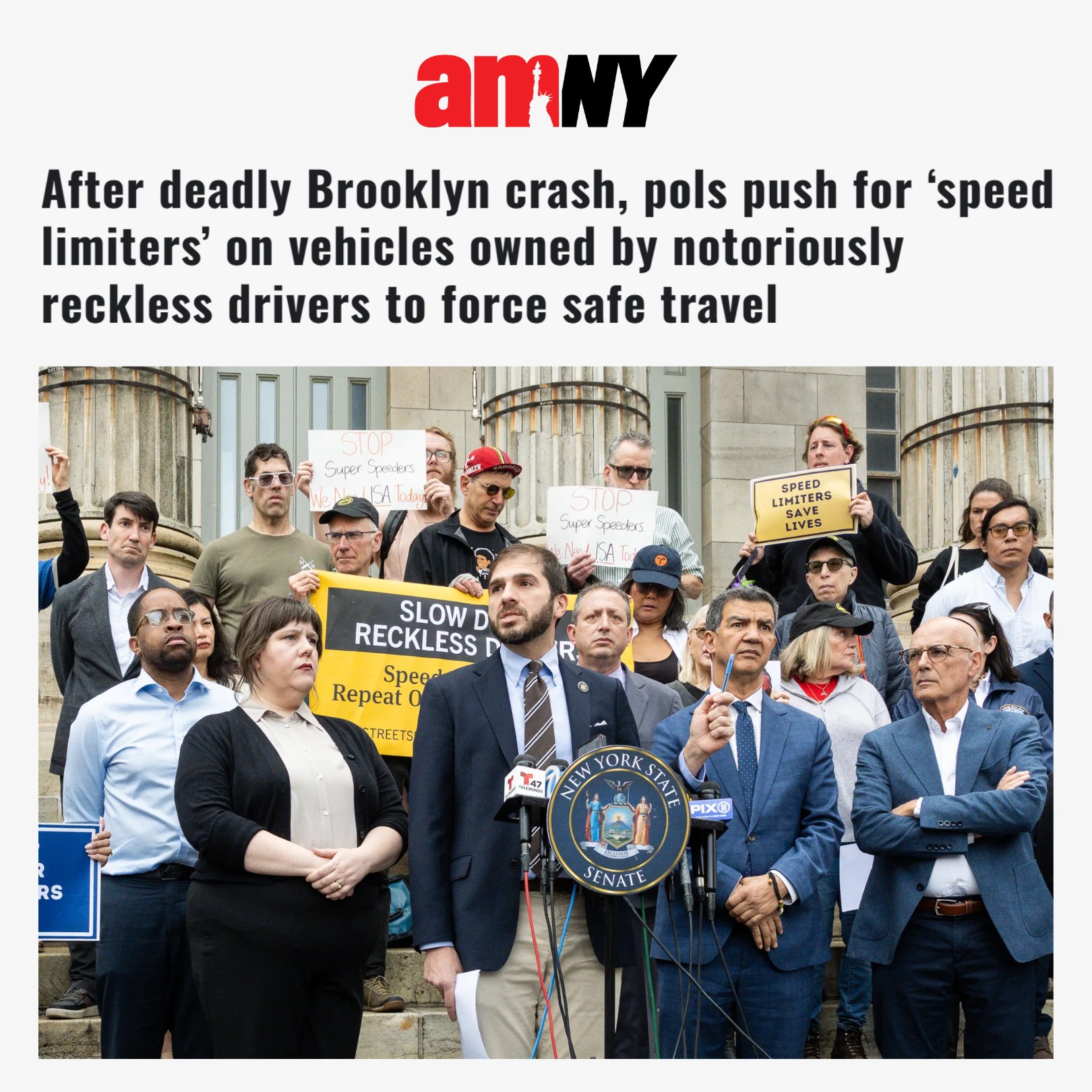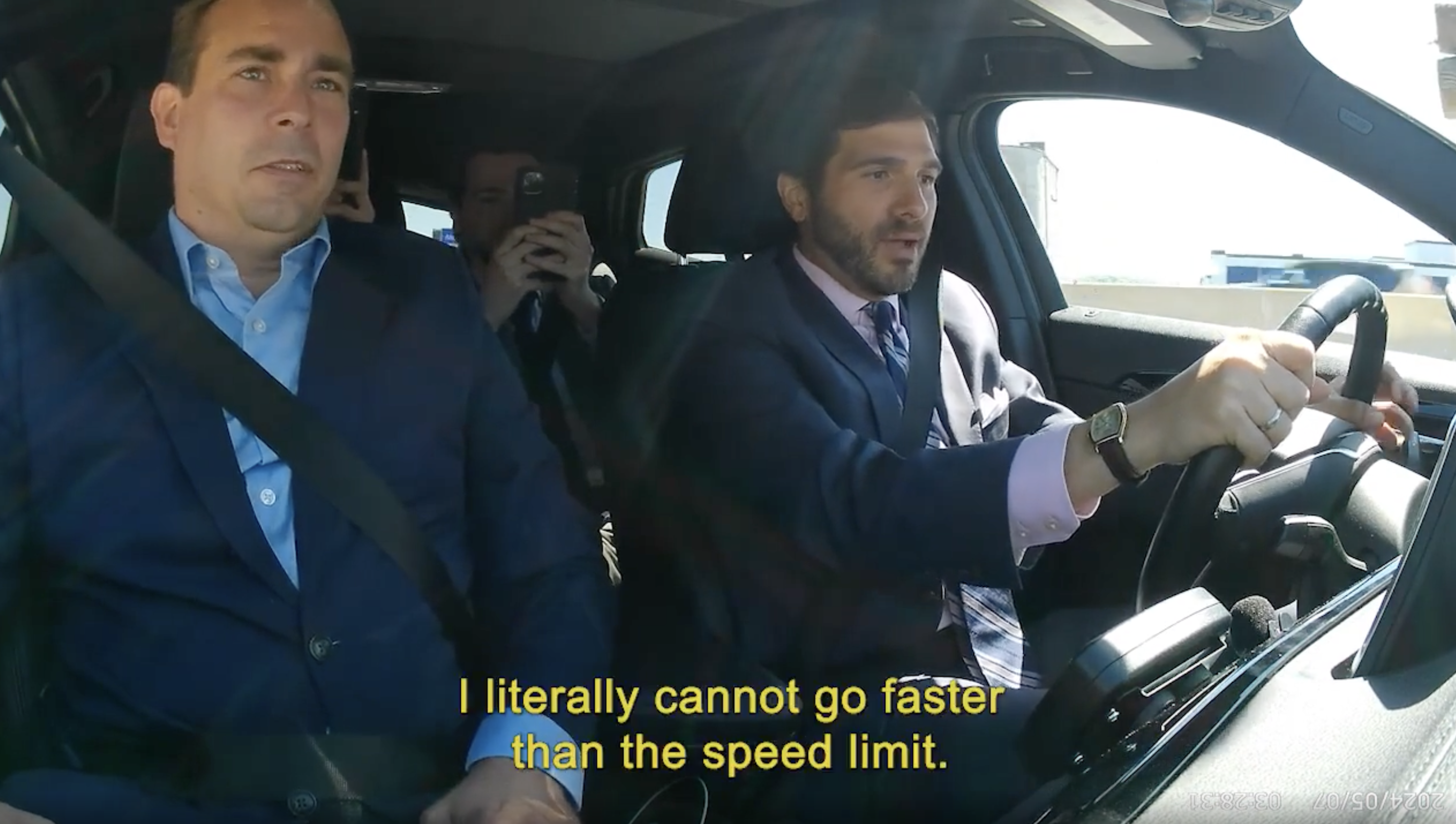|
Dear Friend,
We're once again mourning lives lost to reckless driving on our streets. This time, it's 34-year-old Natasha Saada and her young daughters, Diana and Deborah, who were killed on Ocean Parkway by someone who racked up over 90 traffic violations and was driving on a suspended license.
While these tragic deaths are shocking, we can no longer pretend they're surprising. Hundreds of similar crashes happen across New York every year. It’s no longer enough to shake our heads in despair when these preventable tragedies occur—it’s time to act. |
|
|
Excessive speed plays a role in one-third of all traffic deaths, roughly the same as drunk driving. A person hit by a car traveling 35 mph is five times more likely to die than a person hit by a car going 20 mph.
New York requires an “ignition interlock device” in the vehicle of anyone convicted of drunk driving, a law passed after an 11-year-old was killed by an intoxicated driver. These handheld breathalyzers connect to the car’s engine, and prevent someone from starting it if they’ve been drinking.
It's time to take a similar approach to serial speeding.
Speed limiters (aka "intelligent speed assistance") do a simple, life-saving thing: physically prevent vehicles from speeding. They’re already standard issue in Europe, and the National Transportation Safety Board has recommended the same here in the US.
My Stop Super Speeders Act would require speed limiters on the cars of drivers who get 6+ speed or red-light camera tickets in a year, or 11+ points on their license in two years. That's a small fraction of drivers—repeat offenders who are disproportionately responsible for carnage on our streets—but it would have an outsize impact on safety. The devices would prevent drivers from traveling more than 5 mph over the local speed limit, and the mandate would last a year.
We know this approach works. Speed limiters reduced traffic deaths by 37% in the UK. In fact, we already use them on our own streets: when New York City set up a speed limiter pilot program for municipal vehicles, hard-braking incidents dropped 36% and vehicles followed the speed limit 99% of the time. Virginia just approved a similar law, and other states are considering it.
I test drove a car with a speed limiter installed myself; the experience was smooth, seamless and safe. |
|
|
Of course, my bill is just one part of a holistic approach to ending traffic deaths. We also need to design safer streets, crack down on ghost plates, and improve pedestrian, bike and transit infrastructure.
But I believe speed limiters are a crucial tool to make our streets safer for everyone. I'm fighting to pass my bill before the end of session, to ensure what happened on Ocean Parkway never happens again.
In solidarity, |
|
|
Andrew |
|
Andrew for New York 725 70th Street, Apt C1 Brooklyn, New York 11228 ? ? If you believe you received this message in error or wish to no longer receive email from us, you can unsubscribe at any time by clicking here to unsubscribe. |
|
|



